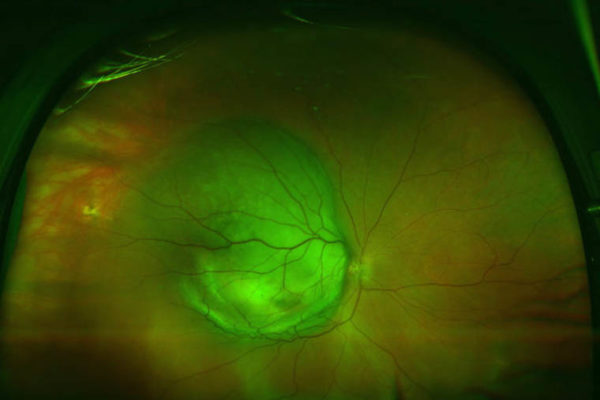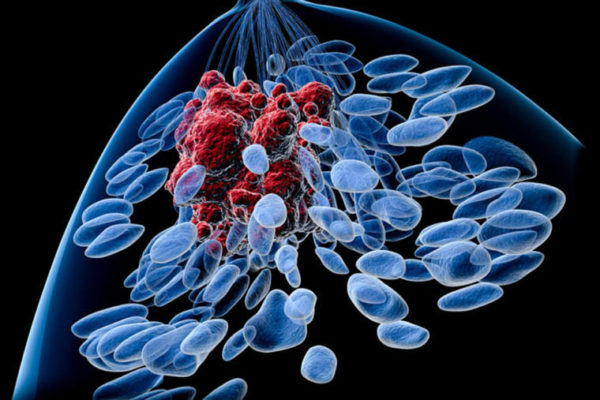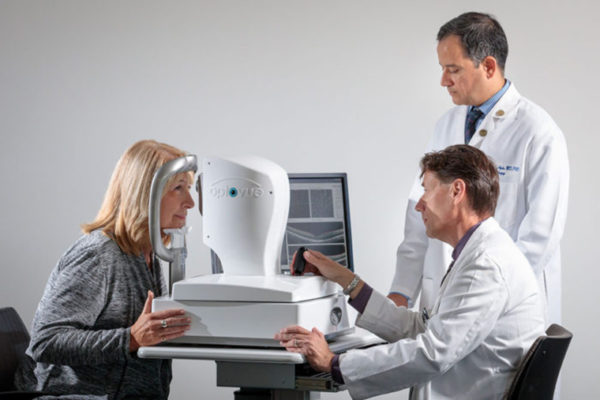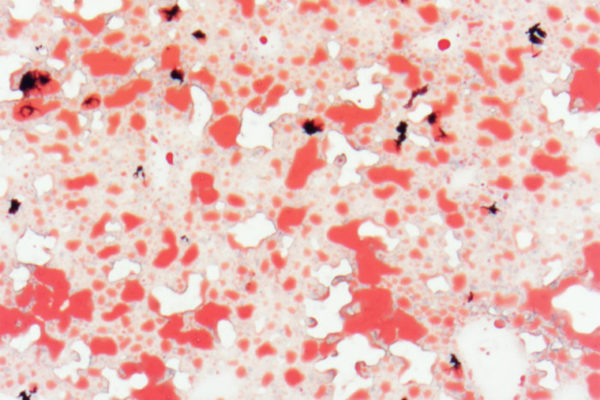Scientists identify weak point in deadly eye melanoma
A new study from the School of Medicine shows that — in human tumor cells grown in the lab — a natural plant compound shuts down uveal melanoma cell growth.
New clues found to understanding relapse in breast cancer
A new study by the School of Medicine and others identifies mutations associated with relapse in ER positive breast cancer — knowledge that could lead to better therapies.
Focused delivery for brain cancers
Hong Chen, assistant professor of biomedical engineering in the School of Engineering & Applied Science and assistant professor of radiation oncology at the School of Medicine, reached across disciplines to work toward a more focused drug delivery system that could target tumors lodged in the brainstem, the body’s most precious system.
Experimental drug shows promise as multiple sclerosis treatment
An experimental drug reduces brain atrophy in people with progressive multiple sclerosis, raising hopes that it also can reduce disability. The School of Medicine is one of 28 clinical sites participating in the study.
Alzheimer’s one day may be predicted during eye exam
Using technology similar to what is found in many eye doctors’ offices, School of Medicine researchers have detected evidence suggesting Alzheimer’s in older patients who had no symptoms of the disease.
Natural sugar defends against metabolic syndrome, in mice
New School of Medicine research, in mice, indicates that a natural sugar called trehalose blocks glucose from the liver and activates a gene that boosts insulin sensitivity, reducing the chance of developing diabetes.
Lasers help fight deadly brain tumors
A research team at the School of Medicine has found that laser treatment designed to destroy the deadly brain cancer glioblastoma can add an average of two months to a patient’s life, compared with chemotherapy. The increase is small but meaningful for people who have only months left to live.
Latinos need a disaggregated approach to health care
More investment is needed in research, funding and policy to improve the collection and analyses of disaggregated health data for the growing and diverse U.S. Latino population, finds a new report from the Brown School at Washington University in St. Louis.
Improving health insurance literacy aids Missourians’ ACA enrollment
Research led by the School of Medicine found that community outreach and education are critical for individuals navigating health insurance options available in the Affordable Care Act (ACA) marketplace. Such efforts at the state level may have contributed to a higher enrollment among Missourians in 2018.
Depressed patients see quality of life improve with nerve stimulation
People with depression who are treated with nerve stimulation experience significant improvements in quality of life, even when their depression symptoms don’t completely subside, according to results of a national study led by School of Medicine researchers.
Older Stories









